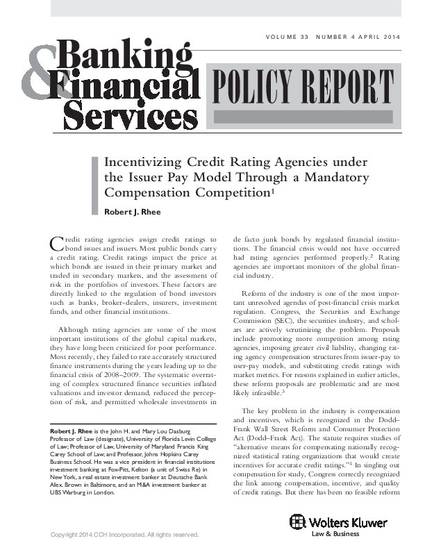
- bonds,
- risk,
- financial institutions,
- global capital markets,
- financial crisis
Credit rating agencies are important institutions of the global capital markets. If they had performed properly, the financial crisis of 2008-2009 would not have occurred. This article offers the simplest fix proposed thus far, and it is contrarian. This Article accepts the central role of rating agencies in the regulation of bond investments, the realities of a duopoly, and the issuer-pay model of compensation. The status quo is the baseline. The role of regulation should be to create the conditions necessary to induce competition. This article proposes that a small, recurring portion of revenue earned by the largest rating agencies should be ceded to fund a pay-for-performance bonus, and that the agencies should compete for this bonus on a periodic winner-take-all basis. This modest, at-the-margin bonding mechanism would significantly affect incentives and outcomes: conflict of interest and implicit coordination would be minimized; competition would increase; the quality of ratings would improve. Since regulation would only be required to assess performance and would not change the fundamental industrial organization, this proposal has the advantage of simplicity and feasibility.

Reprinted from Banking & Financial Services Policy Report, April 2014, Volume 33, Number 4, pages 11-20 with permission from Aspen Publishers, Inc., Wolters Kluwer Law & Business, New York, NY,